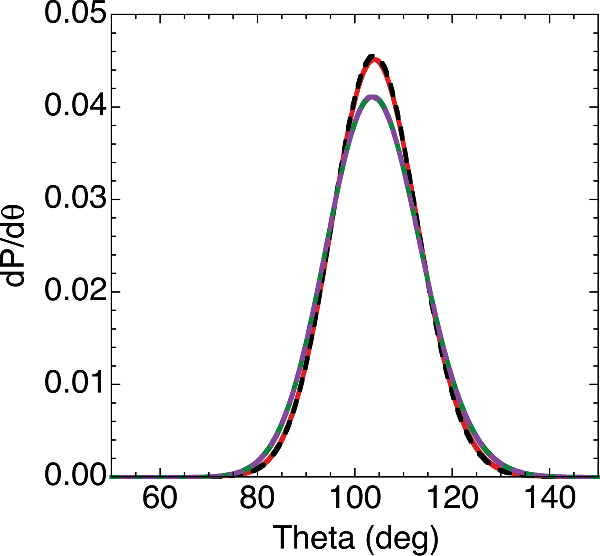J. Chem. Phys. 138, art. no. 014110/15 pages (2013)
We present a procedure to calculate ensemble averages, thermodynamic derivatives, and coordinate distributions by effective classical potential methods. In particular, we consider the displaced-points path integral (DPPI) method, which yields exact quantal partition functions and ensemble averages for a harmonic potential and approximate quantal ones for general potentials, and we discuss the implementation of the new procedure in two Monte Carlo simulation codes, one that uses uncorrelated samples to calculate absolute free energies, and another that employs Metropolis sampling to calculate relative free energies. The results of the new DPPI method are compared to those from accurate path integral calculations as well as to results of two other effective classical potential schemes for the case of an isolated water molecule. In addition to the partition function, we consider the heat capacity and expectation values of the energy, the potential energy, the bond angle, and the OH distance. We also consider coordinate distributions. The DPPI scheme performs best among the three effective potential schemes considered and achieves very good accuracy for all of the properties considered. A key advantage of the effective potential schemes is that they display much lower statistical sampling variances than those for accurate path integral calculations. The method presented here shows great promise for including quantum effects in calculations on large systems.
